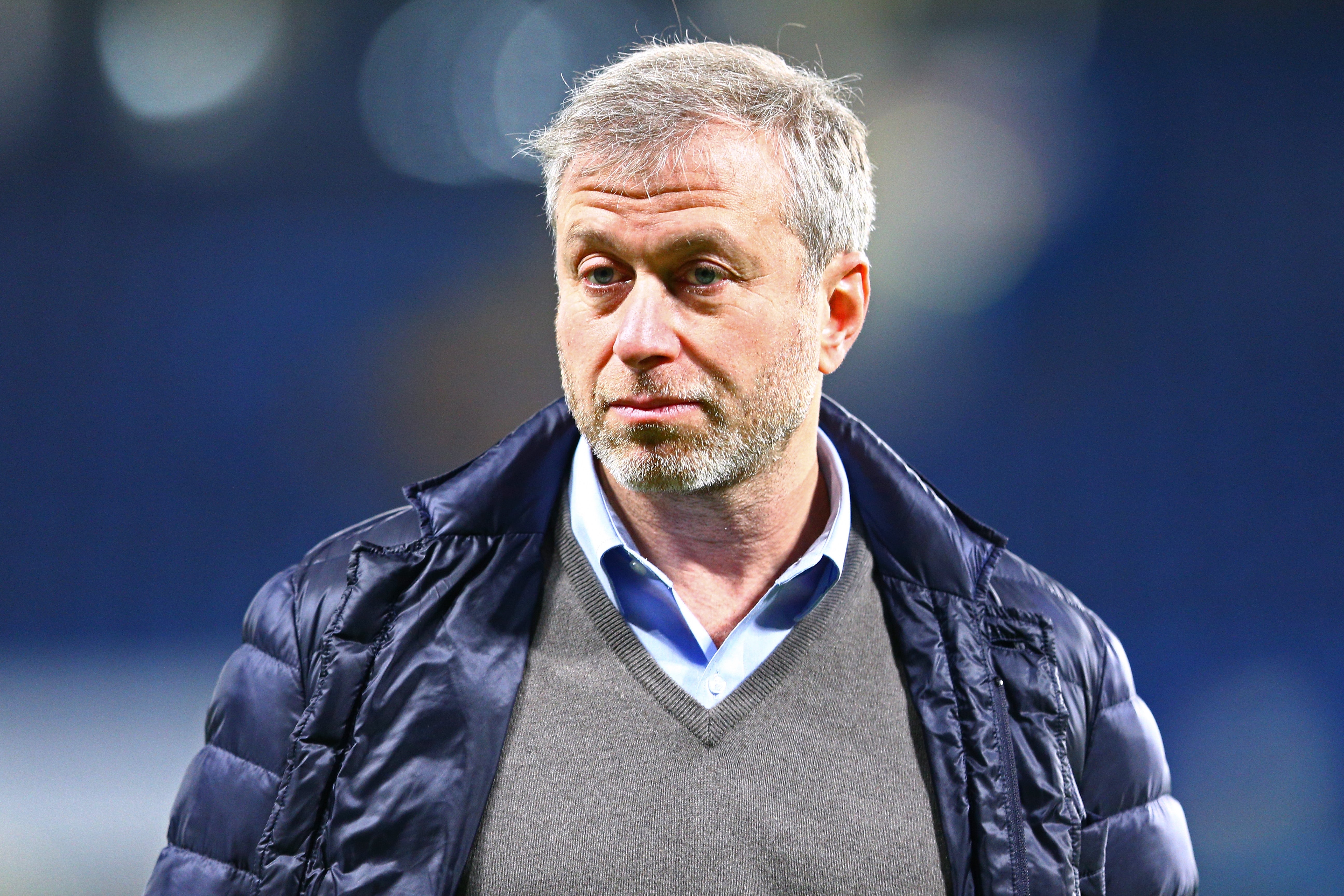Roman Abramovich’s Chelsea exit offers rare chance to reimagine club ownership
With so much surrounding the club now uncertain the prospect of a golden share would protect the identity and heritage of Chelsea, writes Miguel Delaney


As the news of Roman Abramovich’s sanctions properly sank in, many within the Chelsea squad were considering their futures. Some had purely financial and career concerns, but a few wondered how it reflected on them to even be tangentially connected to Russia’s invasion of Ukraine.
Such questions have made elite football a grim enough exercise, but the last two weeks do show how the sport still has the capacity for searing moral lessons. More trivially, it also has the capacity for narratively perfect twists.
Just as the Chelsea situation has provoked a profound examination of football club ownership and the game’s relationship with geopolitics, the club’s very next opponents are Saudi Arabia’s Newcastle United.
“You couldn’t make it up,” one Premier League source said. It does hark back to classic fiction, though. Sunday’s match is the ghosts of football’s past and present against the ghosts of football’s future.
Some of the more politically aware Newcastle fans should at least be conscious that they may soon face similar problems. It is one of many reasons so many people caution against sportswashing and states owning clubs. You are at the mercy of global events way beyond football’s control.
The fluctuations of global oil prices, let alone the politics around the invasion, point to potential ructions. We are talking real “butterfly flapping its wings” possibilities here, as the last two weeks have shown. It does, however, go so much deeper with the owners of Newcastle and Manchester City. The world is already seeing a situation where both Saudi Arabia and the United Arab Emirates, of whom the Abu Dhabi royal family are the most powerful influence, are positioning themselves more towards Russia and away from the West. It is far from inconceivable that neither of these powers are allies of the United Kingdom or United States in the next five to 10 years, especially as we see a wider move away from oil amid environmental concerns.
It is similarly an indictment of the Premier League that they have done business with Mohammed bin Salman, given he is chairman of the Public Investment Fund that owns Newcastle, but Joe Biden will not. The US president refuses to deal with the crown prince over what the CIA says was his responsibility in the 2018 murder of Jamal Khashoggi, as well as other “despotic acts”.
The effects may not be immediate, but this all has huge potential to ripple out. We are in a changed world. Football is not going untouched.
Some well-connected sources insist the owners of Newcastle, and to a lesser extent City, “should be nervous”. Both are waging a war in Yemen that remains a worse humanitarian disaster than Ukraine, at a time when that Russian invasion is pressuring the game to reassess its relationship with geopolitics.
The Chelsea situation is also precisely why supporters should care about these questions, and where the money comes from. Clubs just shouldn’t be put in this situation where they are fretting about their future due to global politics.
The sad reality is that most won’t care. That can already be seen in the credulous praise for Eddie Howe’s “coaching”, with barely a mention of the £80m spent. That is far more January money than has ever been spent by a club in the bottom half - let alone the bottom three - and wouldn’t have been possible without the takeover. If away fans were allowed to attend Stamford Bridge on Sunday, it would doubtless have seen them essentially celebrating Saudi ownership by singing about how Newcastle are set to take Chelsea’s place.
Many of the home fans are inevitably going to sing Roman Abramovich’s name, even though the sanctions should put a completely different perspective on the ownership of the club. Nobody can just look away anymore or point to the football success or charitable endeavours. The sanctions make it all real. They can’t be obfuscated, denied, or suppressed by legal threats. The government notification outright said Abramovich “has had a close relationship with Putin for decades”. The spokesperson for No 10 later followed with a statement that should be a reality check.

“These measures are obviously designed to punish Putin and ensure any revenue generated cannot make its way through the Russian war machine.”
Any celebration of Abramovich’s name, put bluntly, will be a disgraceful denial of reality. It is set to be a grim scene.
For all the focus on that, though, the real focus should really be on a more influential group of fans - as well as MP Tracey Crouch. In a statement, the Chelsea Supporters Trust said that now is the time “for supporters to be given a golden share as part of a sale of the club”.
Dan Silver, who was one of the voices behind that statement, explains how important that is.
“The golden share protects the Chelsea heritage,” Silver tells The Independent. “The last thing the Chelsea fans want is an MK Dons scenario, where somebody comes in and moves them 100 miles up the road and essentially starts a new football club, it’s why it’s so important.
“It protects the club heritage, there are so many important things iconic to Chelsea, the kit, Stamford Bridge, the name.
“It keeps the key Chelsea heritage points there, so they always play in a blue kit with white socks, will always be Chelsea FC, everything associated with being a Chelsea supporter.”
It is why, far from this being a depressing death for the Chelsea we knew, it should be an exciting opportunity for what club and the English game can be. The Abramovich situation offers a rare chance to reimagine football by ensuring fans have a role in who takes over an elite club as well as how it’s run.
“I think Chelsea could be standard-bearers for football in that respect,” Silver says. “It’s not just about what happens to Chelsea. We don’t want the Burys, or Macclesfields or Derby Counties to go through that.
“It’s why the golden share is such a key point to us.”
This, really, should be front and centre of all the discussions around what next. It should be the driving force. It offers real possibility.
The question is why it hasn’t been brought up yet. Why has it been so absent an issue as the government literally discusses the future of the club with the hierarchy.
Some of that is down to just how diluted and short-sighted the Crouch fan-led review was. It almost completely evaded the issue of owners, and failed to even mention state-owned clubs, even though it was obvious even then this was one of the biggest problems the game had.
That review has now been given “new focus”, in the words of one prominent football source.
It did at least feature core guidance for fans having “golden shares”, and the key question is why the author of the report is not pushing it further. The Independent has been told she has been in touch with supporters, but she hasn’t exactly been publicly visible on an issue that crystallises so many of the points of her report.
“Tracey Crouch has been conspicuously quiet,” one Westminster source told The Independent. “Is she going to speak out about her own fan-led review? Where’s the push? It’s been ignored by government, even as it’s directly relevant to the live story of one of the biggest clubs in the country being on the brink of a forcible sale. We’ve heard nothing from the author of the review that was supposed to hand power back to the fans.”
Other sources have remarked that “it’s astonishing she isn’t on TV all the time saying ‘now is the time’.”
The government evidently needs a prompt to act, and that prompt could come from her. Because now is the time. Football has been handed a rare opportunity.
“What we most want is for there to still be a Chelsea Football Club, to safeguard that future,” Silver says.
That football club need not be a cautionary tale for the game, but a vision of what is possible.
Join our commenting forum
Join thought-provoking conversations, follow other Independent readers and see their replies
Comments



Bookmark popover
Removed from bookmarks